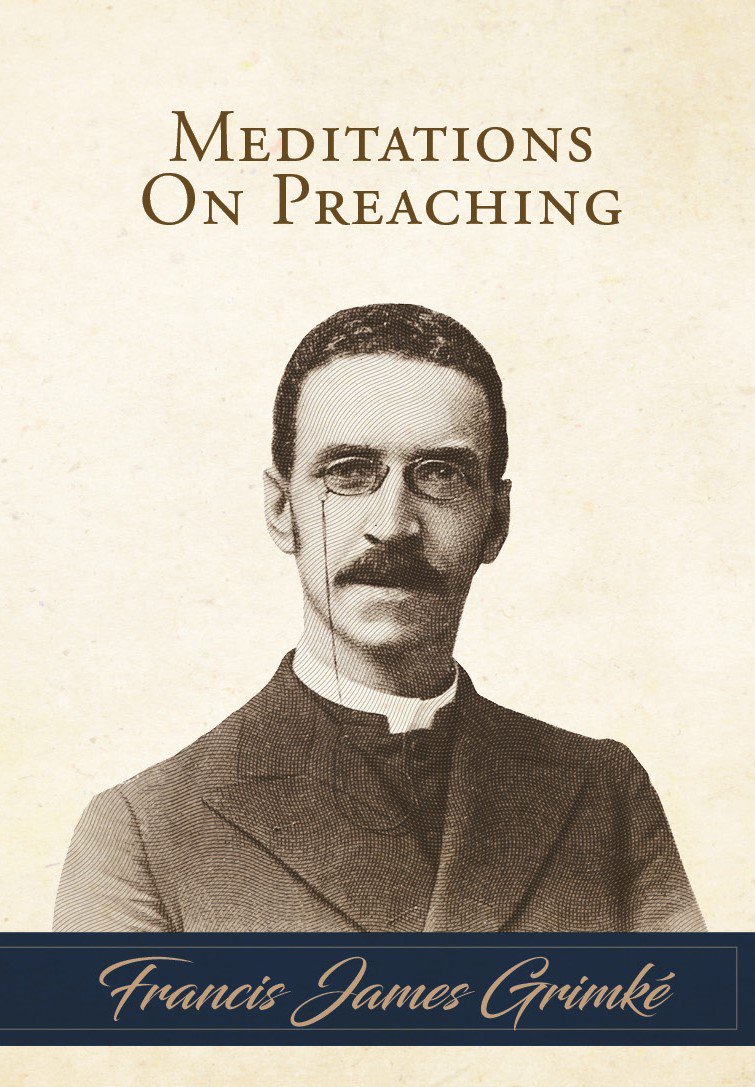
First year students at Reformed Theological Seminary Jackson are introduced to the remarkable life, ministry, and writings of Francis James Grimké through Thabiti Anywabile’s The Faithful Preacher: Recapturing the Vision of Three Pioneering African-American Pastors.
Born in 1850 to a white South Carolina plantation owner and slave mother, Grimké lost his father at an early age and, along with him, the protective care that sheltered him from some of the inherent brutality of the slave system. After escaping the cruelty of a white half-brother, he was recaptured and sold to a Confederate officer.
After emancipation, Grimké proved himself a gifted and industrious student, graduating from Lincoln University and, later, Princeton Theological Seminary. At Princeton, he was among the last of Charles Hodge’s students. Ordained in 1878, he would spend most of the next 50 years serving Fifteenth Street Presbyterian Church in Washington, D.C., where he distinguished himself as a vocal advocate for biblical Christianity and racial equality.
Thanks to Log College Press, second year students will now read Grimké’s Meditations on Preaching, a gem of a book, full of biblical wisdom and common sense. Indeed, anyone interested in the faithful ministry of the word will want to purchase and read.*
Grimké reminds ministers that their work “is a most serious business – the business of calling men to repentance and faith, of warning them against a life of sin, and of showing them the better way through faith in Jesus Christ.” (15)
The minister must pay strict attention to his preaching. “The business of the preacher is to state the truth of God, clearly, fully, simply; the rest the Spirit will take care of. We need not trouble ourselves about the survival of Christianity. God will take care of that; what we need to be concerned about is that we faithfully preach it, line upon line, precept upon precept, here a little and there a little.” (33)
The minister must not waver in his determination to preach the Bible. “It is God’s Word that the people need to hear, whether they wish to hear it or not, and it is the special mission of the minister to see that they hear it.” (70)
Preaching “helpful” sermons should be the goal of every preacher. A sermon is helpful when it “awakens us to a sense of our condition, our failings, shortcoming, imperfections, and at the same time, so sets before us the higher, purer nobler, things that are open to us as to create within us a desire for them and to start us in the direction of them.” (85) “This thought of preaching helpful sermons is one that cannot be too strongly emphasized. If it is not to help people to be better, purer, nobler, more Christ-like of what value is it?” (86)
Before setting foot in a pulpit, wise ministers will put their labors in eternal perspective: “Before we speak again, we may be in eternity; before they hear again the message, they may be in eternity. Into every effort, therefore, we should put our best, we should enter with our whole heart, soul, mind, and strength.” (94)
The minister must pay strict attention not only to his preaching but also to his character, taking care to cultivate a life worthy of his calling. He “should be a man of brains, of sense, of high character, of piety. The ministry is no place for a fool, for a rogue, for a hypocrite, a wolf in sheep’s clothing. He must be a man of sense, of intelligence, an upright and God-fearing man.” (42) Ministry is hard work, and “a man who is not willing always to make the proper preparation has no business in the pulpit, and the sooner he gets out of it the better.” (43)
Although the minister must not ignore wrong, pointing it out should not become the chief part of his work. He must guard against a “scolding ministry,” which “is not likely to be a happy one or a helpful one. . . . People get tired very soon with that kind of ministry.” (49) “Religion should be presented as an attractive, not as a repelling force.” (74)
I found particularly moving Grimké’s reflection on 50 years of ministry, which is full of gospel trust. “I am fully aware of the fact that I am not now, and never have been all that [I] ought to be. All that I ought to be, however, I most earnestly desire to be. Fortunately, it is not in our own righteousness, that we are to stand at last, but in the perfect righteousness of the Lord Jesus Christ, imputed to us and received by faith alone.” (40-41) Amen!
__________
*The meditations in this volume are taken from The Works of Francis J. Grimké, vol. 3, ed. by Carter G. Woodson. Washington, D.C.: The Associated Publishers, Inc., 1942.